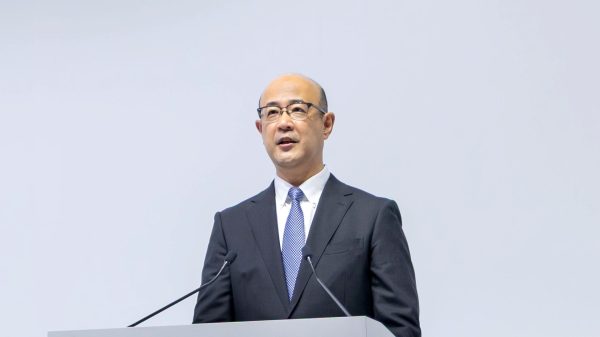 Last year, the Cabinet of Ministers ordered civil servants to be in the office more than three days a week rather than work from home. Photo: Morsa Images/Digital Vision
Last year, the Cabinet of Ministers ordered civil servants to be in the office more than three days a week rather than work from home. Photo: Morsa Images/Digital Vision
Civil servants at the UK's official statistics body have refused to be «forced» to return to the office for two days a week.
More than 1,000 staff at the Office for National Statistics (ONS) have said they will not return to the office for 40 percent of the week.
Employees who are members of the Public and Commercial Services (PCS) union have already voted to strike. and other forms of industrial action to protest the push for more office work.
The union said that from May 8, staff based in Newport, South Wales, Titchfield in Hampshire, London, Darlington, Manchester and Edinburgh will not comply with instructions.
Last year, civil servants were advised by the Cabinet Office that they should be in the office more than three days a week rather than working from home most of the time.
The push for more staff to return to the office has been driven by concerns over productivity cuts.
 Rishi Sunak said the cost increase defense will be partly funded by cutting 70,000 jobs in Whitehall. Photo: UNPIXS
Rishi Sunak said the cost increase defense will be partly funded by cutting 70,000 jobs in Whitehall. Photo: UNPIXS
PCS said many employees were already willing to spend 40 percent of their time in the office, but said mandatory attendance would remove flexibility «for the sake of achieving unnecessary attendance rates.»
A spokesman said: “Following management's promise that staff would be able to continue to work flexibly after the Covid pandemic, some workers started families, moved houses and made other long-term commitments knowing they believed their working conditions were safe.
Fran Heathcote, general secretary of PCS, said: “Our members are a highly skilled and capable workforce and deserve to be treated as such, having proven over several years that they can successfully manage hybrid working.< /p>
“The new policy poses serious disruption, especially for employees with childcare and other caregiving responsibilities, and for those who live a significant distance from their assigned office.
“Workforce employees ONS are spread across the UK, meaning that no matter where employees do their work, most meetings and collaboration must take place virtually.
“Mandatory office attendance removes the flexibility and trust that was promised to employees by senior leaders, around whom employees understandably built their lives. , for the sake of achieving an unnecessary percentage of attendance.»
It comes just days after Rishi Sunak said the increase in defense spending announced this week would be partly funded by cutting 70,000 jobs in Whitehall, returning the civil service to pre-Brexit levels. .
Speaking of his desire to cut jobs in the civil service, Jeremy Hunt told The Telegraph earlier this year: “I think overall there are definitely areas where we employ more people than we should.” < /p>
Responding to the chancellor's comments at the time, Ms Heathcote said: “I will not take moral lessons from a chancellor who thinks it is acceptable for tens of thousands of our hard-working members to lose their jobs in an attempt to win a few votes.
“He says public sector waste is immoral because it takes money out of taxpayers' pockets. Doesn't he realize that the civil servants he wants to see lose their jobs are taxpayers too?»
An ONS spokesman said: «We continue to work with our department unions and are disappointed by PCS's decision to take industrial action despite the range flexibilities built into our hybrid working arrangements.
“Whilst we do not expect this action to have any material impact on the production of key ONS statistics, we firmly believe that a reasonable level of office attendance is consistent with the wider public service — is in the interests of the ONS and all our colleagues. Face-to-face interaction fosters personal collaboration, learning and innovation.”
























































Свежие комментарии